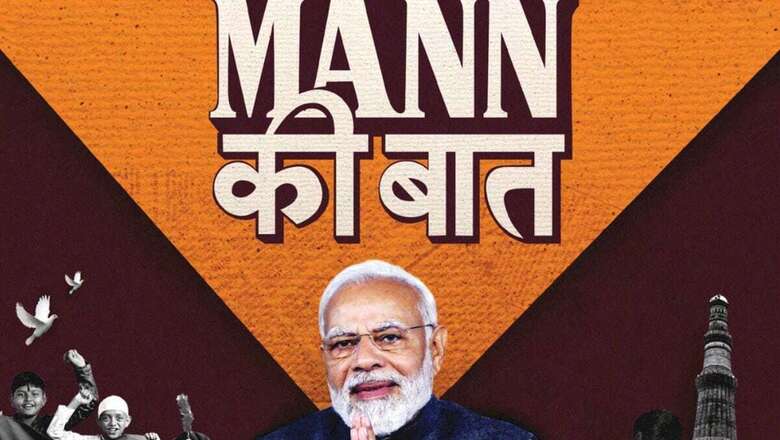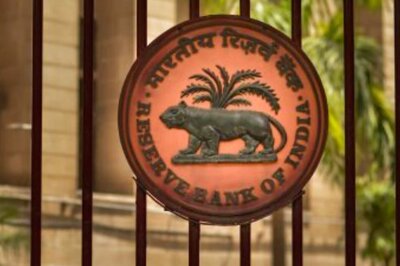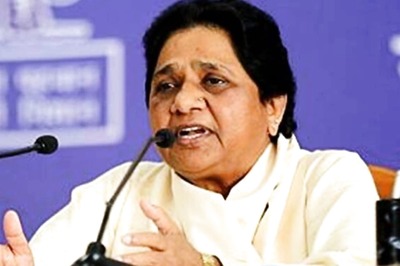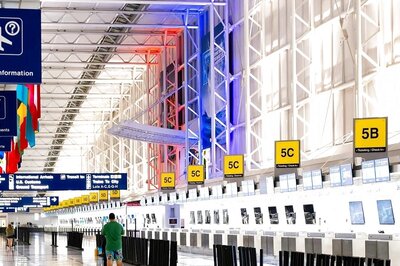
views
The centenary episode of Prime Minister Narendra Modi’s flagship monthly media convergence program ‘Mann Ki Baat’ was broadcasted on April 30, 2023. It is a landmark achievement and the most ideal example for citation on the craft of political communication. The program is undeniably a reflection of the collective conscience of the nation, where he exuded with confidence the idea of perseverance and collective action by everyone. Sharing the idea of ‘Charaiveti, Charaiveti’, which literally implies going on without a haul when faced with adversity, he said, “I firmly believe that collective efforts can bring about the biggest change.” He further said that ‘Mann Ki Baat’ has evolved to honour the goodwill and positivity with the involvement of Indians. Thus indicating his focal point of democratic participation and inclusionism.
The monthly radio programme, which aired at 11 am, was broadcast live across the country and also in various parts of the world including the United Nations Headquarters. Collectively, it is broadcasted in 150 countries, to an audience the size of which is difficult to quantify. Prasar Bharati undertakes the translation and broadcasting of ‘Mann Ki Baat’ in 52 languages and dialects, including 11 foreign languages, thus leading to the maximum possible linguistic outreach. It is India’s first virtually enriched radio programme that is simultaneously broadcasted by 34 channels of the Doordarshan and over 100 private satellite TV channels. The program, since its inception, has worked as a great national unifier and integrator. Narendra Modi affirmed the program is not just a broadcast but a “matter of faith and spiritual journey” for him and a great medium to learn from the qualities of others. He further affirmed that it allowed him to connect with the people of the country as he used to when he was the chief minister of Gujarat.
‘Mann Ki Baat’ forms a paradigm of power and leadership which is compatible with dialogue. Social capital is the latest conceptual attempt to account for democracy’s persistence and, when it actualises, it turns into a prudential success. It also encompasses an essential element of democracy’s performance, i.e. leadership capital. Leadership capital consists of the competence, integrity, and capacities for performance that leaders may have or bring to bear on society’s problems. However, it is grounded and unfolds in a society’s culture and psychology. PM Modi’s interactive political leadership style is more viable than the other political leadership models, including the populist ones, to the patterns of governance in the age of hyper-mediatisation. Over successive episodes, ‘Mann Ki Baat’ emerged as one of the most striking cases of media convergence where All India Radio became the main channel of broadcasting along with TV and digital platforms.
If the program is taken up as a model to explain the usage of Motivating Language Theory (MLT), it is a breakthrough example. The various facets of motivating language (ML) used by the Prime Minister are correlated with leader effectiveness and stakeholders’ participation in an active mode. ‘Mann Ki Baat’ involves direction-giving and motivating language and the political clientele’s perception of a leader’s effectiveness. From the perspective of reputation management and stakeholder engagement, this is an absolute masterstroke and potentially the biggest subliminal catalyst to his success as the national leader. Its citizen-centric purpose with an outreach of a broad social base cutting across the society of the nation spurred community action.
‘Mann Ki Baat’ has captured the imagination of a large number of people because of its attempt at a serious discursive engagement on the part of the Prime Minister to motivate an approach in a disciplined manner, both at micro and macro levels, related to the ideal practices of a wide range of objectives, ranging from the routine of the common man, directions underlying everyday life, practices of good governance, sustainable development, gender parity et all without neglecting the deep structures of the Indian social-political formations and processes. Most of the targets and achievements of the government are discussed, which are simultaneous, complementary and sometimes competing too. It offers the most incisive analysis and critique of the targets of the present BJP government and also of the leader individually and gives a report card for the government’s performance by frequently updating citizens on how the existing schemes are performing, service delivery and the challenges faced by the administration in implementing them. ‘Mann Ki Baat’ is used as the platform to explain the rationale behind some of the revolutionary changes his government has brought about and the intent of particular legislations.
The inclusion of individual success stories by the Prime Minister, as a motivator, is another attribute of the radio program which made it a success in the motivational dimension. He acknowledges efforts made in the remotest corner of the nation by referring to individual efforts and excellence in diverse fields. This can lead the nation to a level of collective excellence. Regional inclusion is also another dimension of ‘Mann Ki Baat.’ A study conducted by Vikas Tripathi, et al, Framing Civilizational Continuity: Modi’s Mann ki Baat and North East India, has concluded that PM Modi mentioned the region several times in MKB in relation to sports, agriculture, tourism and awards. This is a welcome step from the end of the Union government to incorporate the development goals of the hitherto neglected areas.
The platform invites citizens to contribute ideas and suggestions via calls, SMS, social media and the government’s crowdsourcing MyGov.in. Millions of people across the country can interact with the PMO with their ideas, practices, experiences and complaints too through letters, messages and phone calls. Such a dialogical political practice makes democracy more participative and citizen-centric.
The completion of the 100th monthly episode of ‘Mann Ki Baat’ can be undeniably defined as a tool of sociogenesis or of social transformation and revolution. The content of each of the episodes has been diverse, yet intrinsically linked to inclusionism, national integration and human development. The issues have been setting the stage for revolutionary changes in lifestyle diseases, climate change, food management, depression and mental health, digital economy, Swachh Bharat Mission, Atmanirbhar Bharat, Azadi ka Amrit Mahotsav, girl child education and empowerment, youth contribution to technology, water conservation, disability, dealing with exam stress for the younger generation, sustainable development goals, road safety, eradication of drug abuse, financial inclusion, diverse government schemes and policies etc. It highlights the attitude of his office towards transparency and continuous dialogue and a commitment towards a more inclusive and integrated ‘Atmanirbhar Bharat’.
The author is a senior faculty in the department of History, ARSD College, DU. She has done her MPhil, PhD program from Center for Historical Studies, JNU. Views expressed are personal.
Read all the Latest Opinions here



















Comments
0 comment